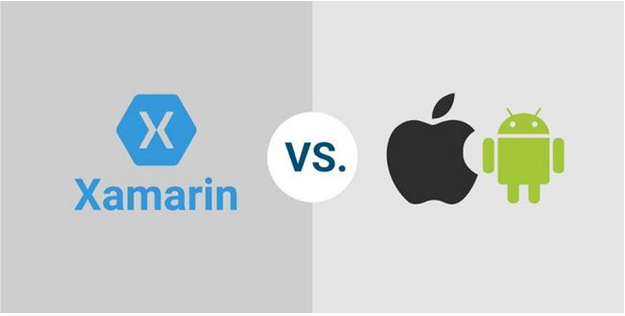Xamarin is one of the popular cross platform mobile app development platforms. It was recently acquired by Microsoft. As a cross-platform, it renders app developers and techies with numerous advantages that throws to wind the difficulties and hurdles faced in traditional app development, through the form of an application platform. By having a variety of platforms for your business, you can help increase your chance of growing your audience and becoming more of a successful business than you already are. App development demand has increased massively since the COVID-19 Outbreak of early 2020, which makes understanding the ins and outs even more important.
Our mobile app developers get this question very often: Xamarin or Native App development; which is the best option?
The truth is, there is no definite answer. Both have their own share of pros and cons. The best option can be chosen only on the light of the given app requirement. While xamarin app development is liked among the industry for one scenario, native app development will be logical for another.
To avoid any further confusion, we are going to explain in detail the benefits of both the alternatives.
Pros of Using Xamarin for Development
Shared Code
Xamarin allows for up to 96% reuse of the code base allowing app developers to push pedal on the app development cycle. Moreover, it does not require the developer to toggle between native app transformation tales development environments. Android, iOS or Windows apps can be coded from the same code base.
Another highlight of Xamarin cross platform app development is that it largely uses Microsoft Visual Studio for coding which has a large user base. Post Microsoft’s acquisition of Xamarin, the platform has yet again become more refined in its performance.
Native Experience
Xamarin helps build apps using a single code base that look, feel and function the same as a native app would. The same code can be used to develop Android, iOS or Windows apps with native traits. Android apps will work the same way with Java and iOS apps with Swift as the case may be. Further, Xamarin is constantly upgraded to match the latest updates and releases that these platforms let out.
Full hardware support
Xamarin’s native app friendliness does not end with software performance but also extends to full hardware support. All hardware compatibility issues that are bound to happen when using a single code base for multiple apps is ironed using specific APIs and plugins. Moreover, Xamarin also gives access to native libraries which makes it flexible for maximum customization and native-level functionalities without incurring additional costs.
Also read:
5 Enterprise Mobile Application Development Challenges That Company Faces
WhatsApp vs BBM: A Face-off Between Two of the World’s Most Popular Chat Apps
Does Your Business Need Cloud Application Development?
Cost-efficiency
Xamarin application development allows cost reusability allows building multiple apps for the cost of building one native app. The cross-platform app development also carries forward features like native business logic, access to libraries/SDKs and network communication features which improves developer productivity. In short, Xamarin allows build apps at fractional costs than it would cost otherwise.
Pros of Using Native Development
End-to-end Customization
Some of the toughest solutions can be solved only with custom-built mobile apps. Sophisticated technology, dynamic business logic and changing stakeholder requirements can be met only with native mobile app development.
Complete Control
Native mobile app development gives complete control over the process. Stakeholders can tweak the process to suit the specific requirements of the platform in use. The complete different techs tacks allow forging mobile apps that have uncompromising performance.
Hardware Capabilities
Native app development allows to exploit the complete hardware capabilities that the native platform has in offer. From scratch code development allows for tweaking and fine tuning the app at any stage for delivering an app experience that is exclusive to the OS.
Final Verdict
If you are looking for an ideal option to build a mobile app using Xamarin , be informed that it can render the same if not identical native app experience in Android, iOS or Windows platforms.
Each of the alternatives come with a bundle of pros and cons each suitable for a given scenario. Hope the above brief will help you pick the right option to build your customized mobile app with high-performance.


